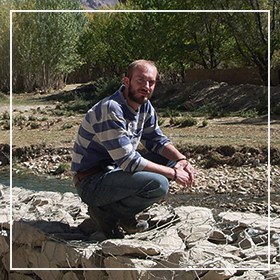We thought that the myth of the ‘good savage’ was behind us. We were wrong. It has simply multiplied. A controversial rhetoric of the good poor, the good migrant, even the good woman, nowadays constitute the main plot of humanitarian actions and good Samaritans’ reports, articles and books.
In the 1976 comedy movie Brutti, sporchi e cattivi (Ugly, dirty and bad), director Ettore Scola reacted to the comforting rhetoric of realism by dismantling the angelic image of the good poor. Set in a slum-like area close to the centre of Rome, the movie narrates the tragicomic story of a family in which immorality, egoism and opportunism dominate everyday life. Being a tragicomic comedy, the movie has generally been reviewed as a caricature of certain Italian low class attitudes, or at least as a provocative description of Italian slums. Certainly the movie describes to a certain extent the contradictions of an unsustainable development whereby accumulation of wealth implies the production of marginalities. But it goes further by depicting a non-apologetic image of those in the margins.
Conversely, nowadays at least three main tendencies can be caught in the discourse on people living in dire need. One is the ‘culturalist explanation’ that associates the social problems of a group or population to its cultural habits and pre-modern attitudes. The second can be defined as a ‘fatalist explanation’, which tends to describe marginality as the result of misfortune and the effect of destiny. Here the poor are for reasons of excellence the good poor. The third is the ‘ideological explanation’, for which social issues have always (and exclusively) a systemic cause, the agency of people vanishing. The humanitarian system condenses in itself all these explanations. The result is not by any means an approach that aims at problematizing marginality, poverty and crisis by enquiring on the structural conditions of social hierarchies, by putting emphasis on the responsibility of people (from the bottom up and vice versa), by dismantling a standardized way of evaluating wealth and richness, by investigating the more ambivalent forms of social coexistence, and so on. Rather, it is an approach useful to support simplifications, which have concrete implications.
As with any form of political action, humanitarianism is fueled by certain myths and beliefs, such as the undeniable advantage of a universal and rigid idea of progress and development, the merciful work of humanitarian operators, the ease with which we can solve the world’s problems (‘donate now to save the life of children’, as many campaigns exhort), etc. To endorse these myths and beliefs a number of protagonists rush over, from political leaders to celebrities. Personally, I see as much imperialism in the ‘proxy humanitarianism’ of celebrities as in declared acts of invasion. The reason is that proxy humanitarianism embodies a cultural attitude, which was rooted in the dominant bourgeois approach toward the subalterns and nowadays is deeply installed in the minds of ‘humanitarian angels’ (and, by consequence, in the minds of celebrities, intellectuals, and everyone who has the capacity to believe that, by sending a few euros, you can save lives and solve the problems of people).
Through its ambassadors – so called celebrities – humanitarianism perpetuates an evolutionist perception of human societies and glorifies one single way of expending a life, while depicting different patterns of life as retarded. Celebrities, more than most others, can embody the myth of liberal individualism. For instance, the popular Italian actor in Afghanistan or the Hollywood superstar in the Congo serve at least two functions: 1) to remind their countrymen that the best way of life possible is the one they have at home; 2) to show the ‘underdeveloped’ that, if they want to improve their living conditions, they have to look like the celebrities. Humanitarian-celebrities are, to all effects, the top model. The aim is, however, not to sell clothes, but to sell a way of life.
It is perhaps no coincidence that humanitarian agencies have monopolized the term solidarity by confining it to humanitarian aid. The term derives from the Latin in solidum, to fully pay a debt. Is that the debt the ‘Global South’ has to the ‘North’ or vice versa?




